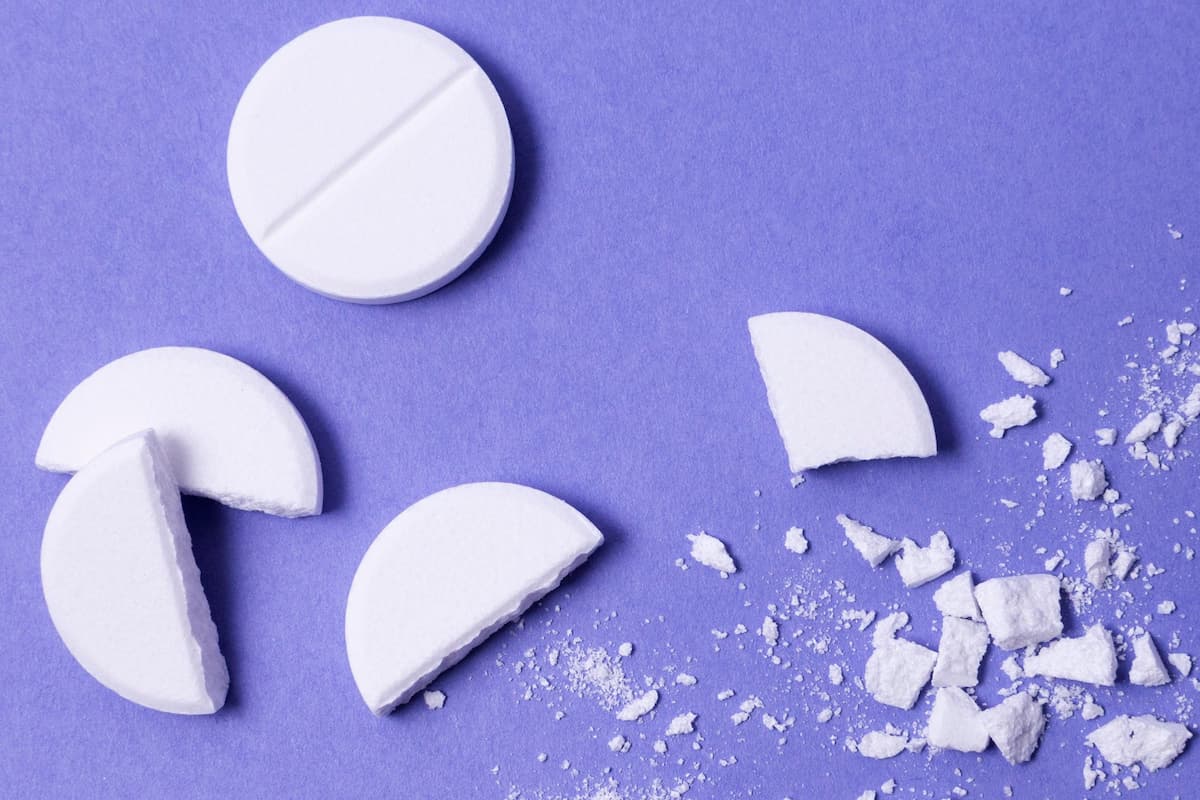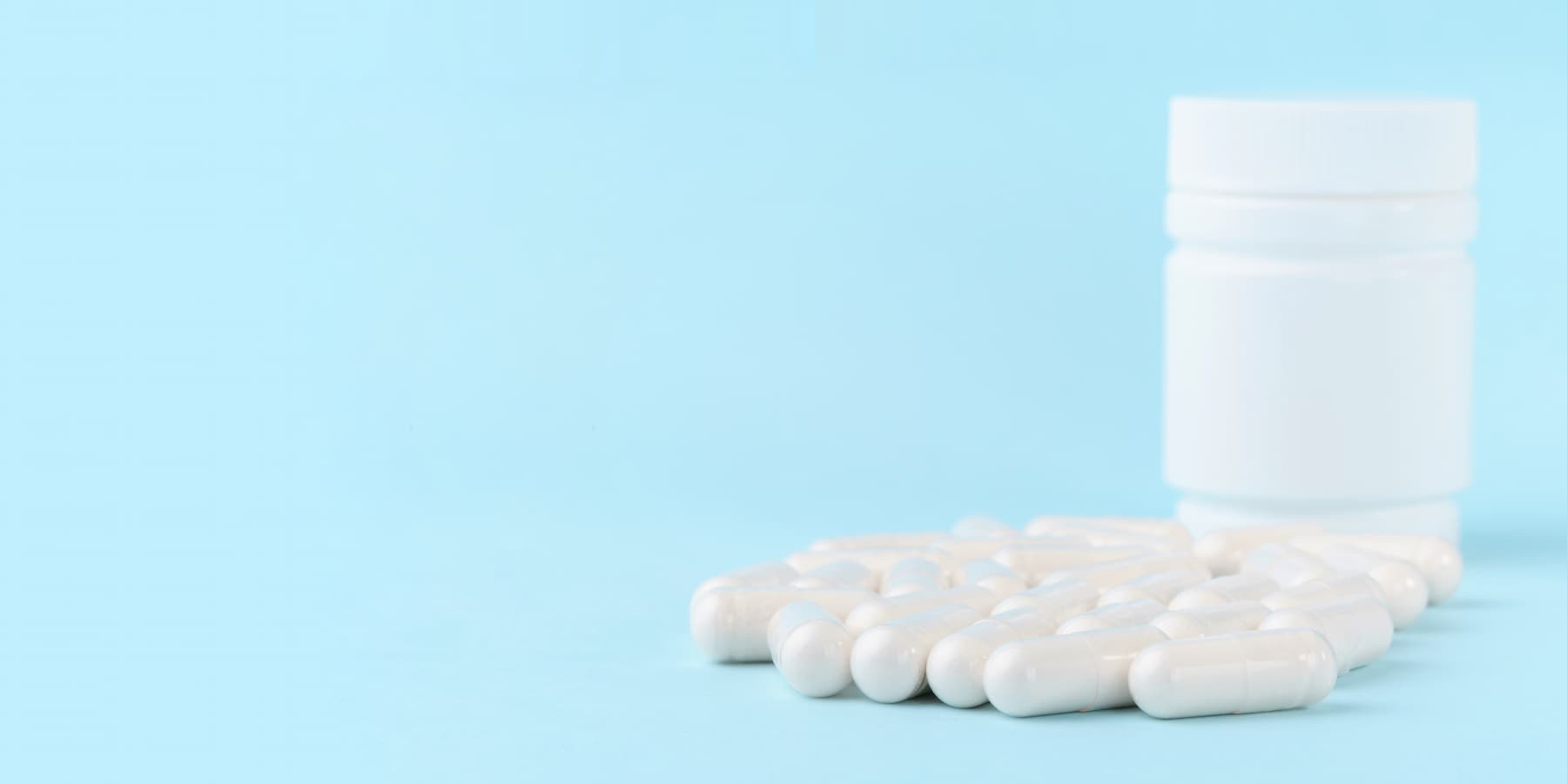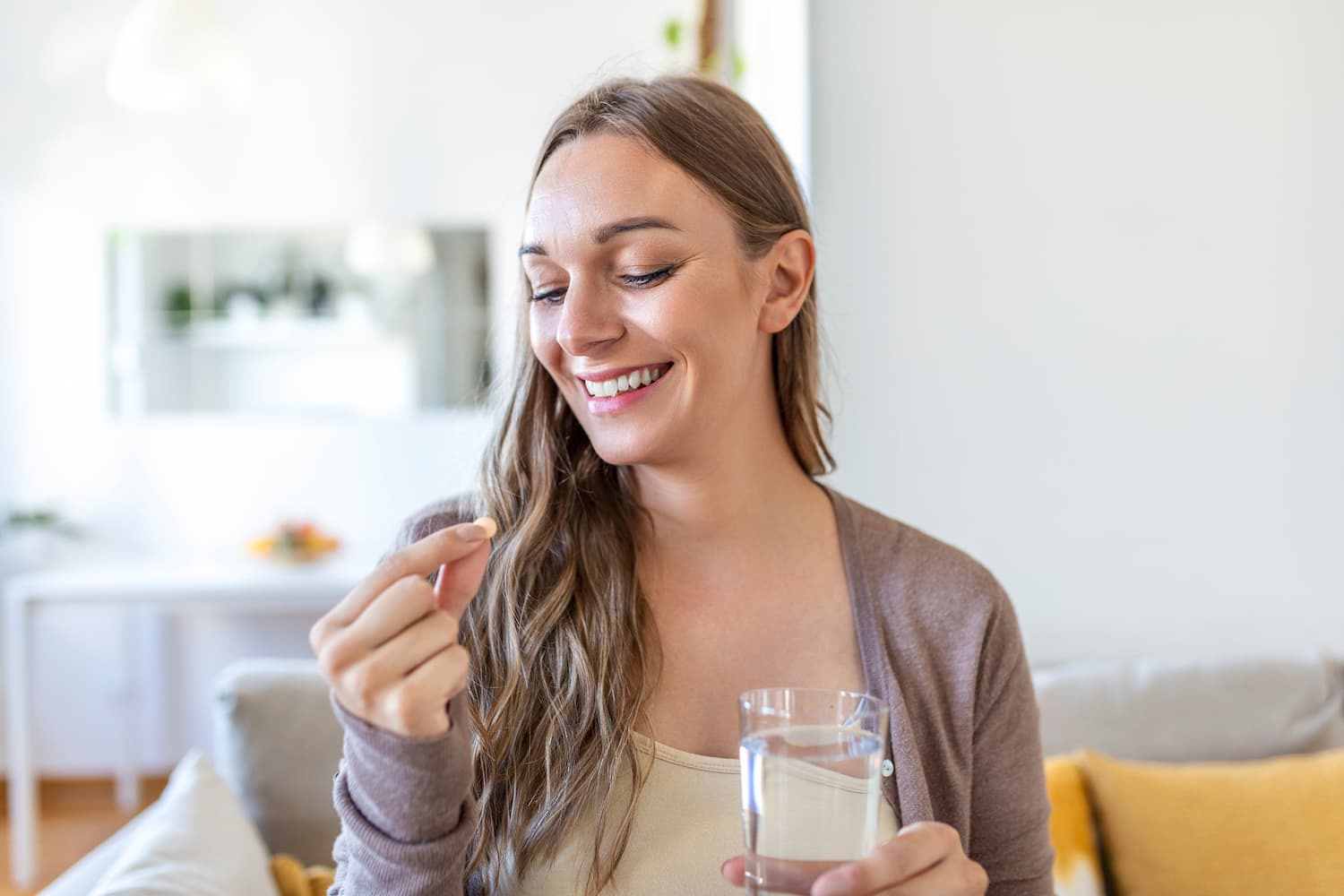Electrolytes: what are they, when to drink them, what do they give, how to supplement, what are they in?
They help with hangovers, colds and strengthen the body. Electrolytes are our little soldiers who take care of the body.


Learn more about our editorial process
.

Learn more about our editorial process
.

Learn more about our editorial process
.

Learn more about our editorial process
.
Why you can trust us
Articles on Natu.Care are written based on scientific research, data from government websites and other reliable sources. The texts are written in cooperation with doctors, nutritionists and other health and beauty experts. Articles are reviewed before publication and during significant updates.
.Learn more about our editorial process
.Information about advertisements
Content on Natu.Care may contain links to products from the sale of which we may receive a commission. When creating content, we adhere to high editorial standards and take care to be objective about the products discussed. The presence of affiliate links is not dictated by our partners, and we select the products we review ourselves completely independently.
.Learn more about our terms and Conditions
.An organism without electrolytes is like a radio without an aerial. At first glance, everything is in place. But you won't pick up any signal. The same, is true of your body. Without electrolytes, it won't be able to send signals, which will stagnate the body's most important processes.
But rest assured, today it is I, together with the Master of Pharmacy will send a signal to you. And we will try make sure that you never run out of power.
From this article you will learn:
.- What electrolytes are, what their functions are and what they help with. .
- What leads to electrolyte deficiencies and how to replenish them. .
- How to dose electrolytes and check their concentration in the body.
- Whether there are contraindications and side effects to the use of electrolytes. .

Sprawdź, za co pokochały go tysiące klientek Natu.Care Premium Omega-3ᵀᴳ -15% z kodem BLOG15
Natu.Care Omega-3ᵀᴳ Premium
Natu.Care Omega-3ᵀᴳ Premium dla zdrowia serca, mózgu i odporności. Najlepsza przyswajalność. Optymalna dawka 750 mg. Przebadana przez niezależne laboratorium.
Zobacz więcej
Produkt ma super skład, transparentną etykietę i co dla mnie jest ważne – małe kapsułki do połknięcia. Nie ma też nieprzyjemnego efektu odbijania rybą, który miałam spożywając inne produkty. Widzę znaczną poprawę odporności. Polecam!@Kasia P.
See also:
.
What are electrolytes?
.
Electrolytes are chemicals that occur in your body in the form of ions. They are found in the blood or plasma. They have the ability to conduct electrical impulses, which is important for many biological processes, such as muscle coordination and respiration. Electrolytes act mainly in the nervous and muscular systemsand.
Participate there in nerve conduction and maintaining tension in cell membranes. They also help to maintain normal water and electrolyte balance, which is important for regulating body hydration and acid-base balance.
Adding salt to a drink promotes fluid retention (accumulation) in the body. This is particularly important when restoring their equilibrium after significant electrolyte loss, e.g. due to exercise-induced sweating..
 .
.
Ilona Krzak Master of Pharmacy
.
What are the most important electrolytes?
.
The composition of the most important electrolytes includes sodium, potassium, calcium and magnesium, but also important are iron and chloride and phosphate ions. Adequate diet and fluid intake most often provide the body with sufficient amounts of these compoundsand.
Therefore, proper nutrition, adequate hydration and regular monitoring of electrolyte levels are essential to keep the body functioning properly.
What properties do the most powerful electrolytes have?
. .
|
Electrolyte . |
Functions in the bodyand |
|
|
|
|
|
|
|
|
|
|
|
Chloride ions |
|
|
Phosphate ions |
|
Sometimes dehydration is used deliberately by athletes (mainly in weight-bearing sports e.g. martial arts) to lose weight. This uses active dehydration, caused by excessive sweating during exercise in heavy clothing, or passive dehydration through food restriction and diuretics to promote fluid loss. This is not a healthy practice..
 .
.
Ilona Krzak Master of Pharmacy
.
What role do electrolytes play in the body?
.
Electrolytes play key roles in many aspects of body function. A lack of them can lead to a variety of health problems, including disorders of the nervous system, immune system and, in extreme cases, even death. Electrolyte balance is the foundation of health.
What are the most important functions of electrolytes?and
- Regulation of pH. Electrolytes help maintain the body's acid-base balance known as pH. Optimal body function depends on maintaining a constant pH level.
- Conduction of nerve impulses. Electrolytes are essential for the conduction of nerve impulses. For example, sodium, potassium and calcium are involved in their generation and conduction.
- Regulation of blood pressure. Certain electrolytes, especially sodium and potassium, help to regulate blood pressure. .
- Hydration. Electrolytes help regulate the body's hydration levels - they support the maintenance of adequate water balance by regulating the flow of water between cells.
- Cellular functions. Potassium, calcium and magnesium play roles in cellular functions, such as enzyme reactions.
- Key for bone health. Calcium is essential for healthy bones.
Interesting fact
.Because of its electrolyte content, coconut water was once used as an 'emergency' blood transfusion fluid. Its saturation of electrolytes, such as sodium and potassium, is similar to the concentration of electrolytes in blood plasma.
What do electrolytes help with?
.
The many functions of electrolytes mean that they can support the body in a variety of ways. Some include support during a cold, vomiting, diarrhoea or... a hangover.
What do electrolytes do?
What do electrolytes help with?
.
For hangovers
.
Hangover is the colloquial name for the syndrome of symptoms accompanying alcohol intoxication caused by dehydration. Research suggests that alcohol increases urinary excretion. Consuming 50 grams of alcohol per 250 ml of water (about four drinks) leads to the excretion of 600-1000 ml of urine in a few hoursand.
It is dehydration that is the main cause of hangover symptoms such as headache (present in 72% of people), dry mouth, weakness and fatigue .
.
Hangover electrolytes, such as sodium, potassium and chloride, are essential for maintaining fluid balance in the body. They help regulate blood pressure, muscle function and other key processes.
Drinking electrolytes from the pharmacy, coconut water, pickle drink or brine, can help to restore the balance of electrolytes in the body, resulting in relief of hangover symptoms.
Does the type of alcohol consumed affect a hangover?"
.A study of 172 people showed that 24% of participants had no hangover at all after drinking alcohol, 44% reported a mild hangover and the remainder reported a moderate hangover. Interestingly, the type of alcohol was not associated with the incidence of hangoverand.
Popular 'hangover' supplements contain electrolytes, glucose and stimulants. But beware - for a 'hangover headache', drugs with paracetamol cannot be used, as this has a toxic effect on the liver..
 .
.
Ilona Krzak Master of Pharmacy
.
For dehydration
.
Electrolytes support the body's rehydration process. Minerals such as sodium, potassium and magnesium help regulate water levels in the body.
Dehydration occurs when the body loses more water than it can assimilate. This can occur after intense exercise, during illness, or as a result of ingesting certain medications (mainly diuretics) or herbal infusions, which also have diuretic and diuretic effectsand.
.
Water loss is often associated with a reduction in electrolytes, resulting in mineral imbalances in the body. In such situations, drinking water alone may not be sufficient to regain normal hydration .
Hydration with electrolyte-containing beverages can speed up the process of recovering fluid and electrolyte balance in the body.
Severe thirst despite consuming plenty of fluids and frequent urination can be symptoms of diabetes..
 .
.
Ilona Krzak Master of Pharmacy
Note
Remember that protecting yourself from dehydration is not just about consuming electrolytes. It is also necessary to drink enough water on a regular basis and to maintain a healthy lifestyle. If you are concerned about dehydration, it is always a good idea to consult your doctor.
For hot weather
.
During very hot days (especially after intense physical activity), your body loses a lot of fluids and electrolytes through sweatand.
.
Adequate hydration, which includes replenishing lost electrolytes, can help alleviate heat-related symptoms such asand:
- fatigue, .
- headaches or dizziness, .
- fainting, .
Electrolytes can also help during sunstroke. But beware, if you feel there is something wrong with your health, go to the doctor immediately.
Important
The 2021 study looked at the impact of high temperatures and heat waves on mental health and deaths. Based on data from 1.7 million deaths and 1.9 million cases of people with mental illness, it was observed that with every 1°C increase in temperature, the risk of mortality and morbidity increases. Older people and those living in tropical and sub-tropical zones are at greatest riskand.
.
For diarrhoea and vomiting
.
Electrolytes for diarrhoea can effectively support your body. Diarrhoea, vomiting and excessive sweating lead to the loss of these valuable substances, causing dehydration and electrolyte imbalanceand.
However, remember that severe diarrhoea or vomiting requires consultation with a doctor. Their occurrence may be a sign of medical conditions that may require specialist treatment.
Interesting facts
Although, sweat is salty, it is a poor source of electrolytes as it has a low salt concentration compared to most electrolyte drinks.
The best recipe for treating a cold is to hydrate properly and rest. Electrolytes are particularly important for diarrhoea and vomiting in infants and children. The youngest are extremely susceptible to rapid dehydration. Therefore, frequent administration of small portions of electrolytes is then recommended..
 .
.
Ilona Krzak Master of Pharmacy
.
For strengthening
.
Electrolytes for adults for strengthening help keep the body healthy and strong in several key waysand:
- Maintaining fluid balance. Helping to regulate the amount of fluid in the body, which is important for maintaining the right concentration of substances in the cells.
- Muscle support.Electrolytes, such as magnesium, help muscle function, both in the course of normal work and during intense exercise, which can translate into overall strength and endurance.
- Nerve support. They are essential for the conduction of nerve impulses in our body.
- Regulation of pH. Electrolytes help to maintain a normal pH in the body, which is important for the proper functioning of all systems.
Biochemical reactions
The acid-alkaline balance in your body affects the speed at which various biochemical reactions are carried out. A difference of just a few percentage points in pH can drastically alter the speed of these processes and therefore disrupt the body's function.
Biochemical reactions
For viral infections (cold)
.
Electrolytes are not an antiviral agent and will not directly help against a viral infection such as the common cold. However, they do have several key roles that can help the body recoverand
Electrolyte imbalance can lead to feelings of weakness, which is especially dangerous when the body is already burdened with fighting infection.
During illness, especially when accompanied by fever, vomiting or diarrhoea, the body can lose electrolytes more rapidly, leading to dehydration. In this case, electrolyte replenishment is very importantand.
Interesting fact
.The time from infection to the onset of cold symptoms is usually between 1 and 3 days. And the standard length of a viral infection is about 7-10 daysand.
For cramps
.
Electrolytes can help prevent muscle cramps. Constituents such as sodium, potassium, calcium and magnesium are essential for proper muscle function, including the processes of contraction and diastole. Too low levels of any of these components can lead to muscle crampsand.
Patients often associate cramps with magnesium deficiency, but deficiency of this mineral is relatively rare. More common are cramps caused by electrolyte imbalances..
 .
.
Ilona Krzak Master of Pharmacy
.
Why are electrolytes important for athletes?
.
- Regulation of hydration. Electrolytes, such as sodium and potassium, help to control the body's fluid balance. During intense exercise, athletes sweat a lot, thus losing fluids and electrolytes, leading to dehydration. Electrolyte supplements can help maintain adequate hydration levelsand. .
- Brain function. Electrolytes are essential for the proper functioning of nerves and neurons. They create electrical voltage through the difference in ion concentrations outside and inside nerve cells, which allows impulses to be transmittedand. .
- Muscle fitness. Electrolytes (calcium and magnesium) influence the proper functioning of muscles. Calcium is essential for muscle contraction, while magnesium affects muscle relaxationand. .
- Regulation of pH. Electrolytes help maintain adequate blood pH, which is key to the proper functioning of all body systems . .
A lack of electrolytes, especially during prolonged exercise, can lead to muscle cramps, fatigue, nausea and even unconsciousness. Therefore, athletes should pay special attention to taking care of their body's electrolyte levels.
Electrolyte deficiency
.
Electrolyte deficiency is a condition when the levels of minerals needed to transmit nerve impulses, regulate heart rate, maintain hydration and build healthy bones, are too low.
Electrolyte deficiency
Causes
.
Many factors lead to electrolyte deficiency, such asand:
- excessive sweating, .
- diarrhoea, .
- vomiting, .
- incorrect diet,
- excessive sweating,
- intoxication,
- vomiting.
- alcohol consumption, .
- chronic illnesses (e.g. diabetes), .
- use of selected medications, such as diuretics, .
In short, anything that leads to dehydration will, in the long term, result in electrolyte deficiency.
Symptoms
.
Symptoms of flushed electrolytes can includeand:
- muscle aches, .
- cramps, .
- weakness, .
- shivering, .
- anxiety, .
- dizziness, .
- insomnia, .
In extreme cases, electrolyte deficiency can even result in unconsciousness. The condition can also lead to a changing mood, loss of appetite, digestive problems and general weakness.
Effects
.
Prolonged electrolyte deficiency can result in serious health problems, such asand:
- heart arrhythmia, .
- osteoporosis, .
- thrombosis, .
- concentration problems, .
In more severe cases, brain injury, coma and even death can result - electrolyte deficiency is a condition not to be taken lightly.
How to replenish electrolytes?
.
Providing the body with the right amount of electrolytes is key to maintaining health. This can be achieved in several different ways:
.
Diet
.
The most important way to replenish electrolyte levels is through a balanced diet. Foods such as bananas, oranges, grapefruit, avocados, spinach, yams, natural yoghurt, beans, sesame, almonds or meat are excellent sources of various electrolytesand.
Liquids and isotonic drinks
.
An isotonic drink is a type of fluid that contains similar concentrations of salts and sugars that occur naturally in the body. They are usually rich in electrolytes such as sodium, potassium and chloride. Keep an eye on the sugar content of such drinks - it is not uncommon for it to be higher than you might expect.
Electric supplements
.
Electrolyte supplements are available over-the-counter and can be a convenient way to correct a deficiency. They most often come in the form of effervescent tablets or powders that need to be dissolved in liquid. However, watch out for possible interactions if you are taking any additional agents.
Where to buy electrolytes?
.Electrolytes can be purchased primarily from a pharmacy. However, these preparations are also available in e.g. online shops. Almost all of them are dietary supplements or medical devices. There is only one electrolyte available on the market in the form of a medicine - Gastrolit. The price of electrolytes is usually low and amounts to several zlotys.
.
When to drink electrolytes?
.
Drink electrolytes during and after intense training to compensate for their loss through sweat. It is also a good idea to take them during fever, diarrhoea or vomiting (in dehydration conditions). Electrolytes are also essential during convalescence and for people who do not maintain a balanced diet.
How to make homemade electrolytes
.
To make homemade electrolytes for children and adults, you need: water, lemon, natural honey, sea salt and magnesium supplement powder. Combine 1 litre of water, the juice of 1 lemon, 2 tablespoons of honey, ⅛ teaspoon of sea salt and ¼ teaspoon of magnesium. Mix everything until the salt and honey are dissolved. Drink during hot weather or while training.
Home electrolytes for diarrhoea or a cold can also support you effectively when you experience these conditions.
How long can you drink electrolytes?
.
Electrolytes can be drunk without taking a break from supplementation, provided you follow reasonable recommended doses and your lifestyle requires it. If you lead an active lifestyle, are in high temperatures or have deficiencies, uninterrupted supplementation would even be advisable.
Can electrolytes be drunk daily?
.
Yes, electrolytes can be drunk daily, but only when needed, such as after intense exercise, illness or in hot climates. It is important not to exceed the manufacturers' recommended dosages, as this can lead to adverse health effects.
Can electrolytes be drunk overnight?
.
Yes, electrolytes can be drunk overnight, but it is usually not necessary unless there has been a lot of physical exertion in the evening or there are symptoms of dehydration. Be aware, however, that drinking large amounts of fluids just before bedtime may prompt you to make frequent visits to the toilet at night.
How many times a day to drink electrolytes?
.
During physical activity, in hot weather or if you have an illness that causes you to lose fluid (such as diarrhoea or vomiting), you should increase your electrolyte intake. This may mean one or more additional servings of electrolytes per day, depending on the intensity and duration of the cause of the deficiency.
Electrolytes - before or after training?
.
Electrolytes are important both before and after training. Before exercise, they help maintain healthy hydration and prevent muscle cramps. Post-workout, on the other hand, they promote faster recovery by compensating for the loss of minerals with sweat and helping to rebuild muscle energy stores.
Can you overdose on electrolytes?
.
Yes, it is possible to overdose on electrolytes. Excess electrolytes can lead to serious health problems such as kidney failure, swelling, diarrhoea, nausea or cardiac arrhythmia. Electrolyte balance is important for the body to function properly.
Can electrolytes be drunk on an empty stomach?
.
Yes, electrolytes can be drunk on an empty stomach. There are no specific guidelines for consuming electrolytes on an empty stomach. For some people, consuming electrolytes on an empty stomach may even help them to be absorbed quickly.
But in other cases, products with electrolytes and high sugar content, may cause slight stomach upset, so it is best to follow the manufacturer's guidelines and personal preference.
Best electrolytes for adults, children and babies - ranking
Plussz electrolytes
.
Rating: 4.8
- Form: effervescent tablets .
- Dosage: 4 tablets daily .
- Sufficient for: 6 servings .
Product description:
Good electrolytes Plusssz in the form of effervescent tablets is a preparation in the form of multivitamin. In addition to the most important electrolytes such as potassium, chlorine, calcium, magnesium and sodium, the supplement also provides B vitamins.
Taking it can effectively supplement the full requirement of key nutrients, but not electrolytes. Even at the recommended dosage (4 tablets per day), a serving of the aforementioned electrolytes is approximately 20-30% of an adult's daily requirement.
This is why we recommend this product to people who want to take electrolytes preventively rather than to make up for a larger deficiency.
Pluses and minuses:
.
Pluses:
- Accessible form (effervescent tablets).
- Fruity taste.
- Fruit flavour. .
- Additional active ingredients (B vitamins). .
Minuses:
.- Not large portions of electrolytes (potassium, chlorine, calcium and magnesium). .
- Requirement to take 4 tablets per day.
- Minus.
Additional information:
.
Product contains sugar and sweeteners.
.
Litorsal electrolytes
.
Rating: 4.8
- Form: effervescent tablets .
- Dosage: 1 tablet daily .
- Sufficient for: 24 servings .
Product description:
Drinking electrolytes for adults Litorsal is a simple dietary supplement without many additives. The formula primarily provides salt, vitamin C, potassium and sodium. It will work well during dehydration (e.g. diarrhoea or hot weather) and also after consuming large amounts of alcohol.
Pluses and minuses:
Pluses:
- Productive packaging (can last up to 24 days).
- Productive packaging.
- Possibility to extend the dosage to 3 tablets per day. .
- Fruit flavour. .
Minuses:
- Lack of all key electrolytes. .
- The doses of the active substances could be higher.
- The doses of the active substances could be higher.
Additional information:
.
Product contains sugar and sweeteners.
Orsalit electrolytes
.
Rating: 4.8
- Form: sachets of powder .
- Dose: depending on condition .
- Sufficient for: 10 servings .
Product description:
Electrolytes for children Orsalit in sachets is a dietary supplement providing the most important nutrients during dehydration. The product is distinguished by its neutral taste and the fact that it can also be administered to infants.
Pluses and minuses:
Pluses:
- Good for the youngest.
- Neutral, low-odor and low-fat.
- Neutral taste. .
Minuses:
.- Lack of all the most important electrolytes.
Additional information:
.
Product contains sugar and sweeteners.
Oryal Senior Electrolytes
.
Rating: 4.9
- Form: effervescent tablets .
- Dosage: 1 tablet daily .
- Sufficient for: 24 servings .
Product description:
Powerful electrolytes for seniors to support hydration and immunity. The product is distinguished by its taste - it has an orange and bergamot flavour. At the manufacturer's recommended dosage, the effervescent tablets will last for up to 24 days of supplementation.
Pluses and minuses:
.
Pluses:
- Efficient packaging.
- Fruit flavour. .
- Additional vitamins. .
- Most of the key electrolytes in the formulation. .
- Fruity taste.
Minusals:
.- Doses of active substances could be higher.
Additional information:
.
Product contains sugar and sweeteners.
Expert opinion:
.
With a balanced diet, the doses of the active substances are sufficient..
 .
.
Ilona Krzak Master of Pharmacy
Dicoflor electrolytes
.
Rating: 4.8
- Form: sachets .
- Dose: 2 sachets per day (sachet A and B) .
- Sufficient for: 6 servings .
Product description:
Electrolytes for children in the form of double sachets. The first provides valuable electrolytes to support hydration. The second, on the other hand, is a wealth of bacterial cultures. Therefore, the product will prove useful especially during diarrhoea and vomiting.
Pluses and minuses:
.
Pluses:
- Good for children and babies. .
- Additional active ingredients (bacterial cultures). .
Minuses:
.- High sugar content .
Additional information:
.
Because of the sensitivity of the live bacterial cultures in the formulation, the product should be protected from heat and sunlight.
What are electrolytes - natural sources
.
The main source of natural electrolytes in every person should be a balanced diet. In the table below you will find products rich in particular electrolytes.
Natural sources of electrolytes.
.
|
Electrolyte . |
Natural sourcesand |
|
Sodium |
|
|
Potassium |
|
|
Calcium |
|
|
Magnesium |
|
|
Iron |
|
|
Chloride ions |
|
|
Phosphate ions |
|
.
Electrolyte excess
.
Electrolyte excess in the body is a condition as dangerous as electrolyte deficiency. It is led to by factors such asand:
- Unhealthy diet. Overconsumption of substances such as table salt (sodium), bananas and oranges (potassium), or dairy products (calcium) can lead to an overdose of electrolytes. However, these are rare cases - it is difficult to do so from the diet.
- Renal malfunction. The kidneys are responsible for regulating electrolyte levels in the body. If they are not functioning properly, they may not be able to effectively remove excess electrolytes.
- Medications. Several agents such as non-steroidal anti-inflammatory drugs (NSAIDs) or antihypertensive drugs (ACEIs, ARBs) can increase the concentration of electrolytes, especially potassium, in the body.
- Chronic diseases. Such as diabetes mellitus, heart failure or Cushing's syndrome, can lead to excess electrolytes.
- Excess vitamin D. Vitamin D helps with calcium absorption, so excess vitamin D can lead to hypercalcaemia (excess calcium).
- Hormonal disorders. Some disorders, such as hypothyroidism, can result in excessive electrolyte levels.
Symptoms
.
An excess of electrolytes in the body can be identified by the various symptoms that occur when the levels of these components are too high. The most common symptoms of excess electrolytes areand:
- Muscle weakness. An excess of electrolytes can affect muscle function, leading to a feeling of weakness or fatigue.
- Impaired muscle function.
- An irregular or rapid heartbeat. Electrolyte levels affect heart function. Too high a concentration of these can result in an irregular heart rhythm.
- Electrolytes.
- Pnea. People with excess electrolytes can experience shortness of breath, which is most often due to heart problems.
- Vomiting and nausea. An excess of electrolytes can affect the digestive system, leading to nausea and vomiting.
- Oedema. Excess sodium, one of the electrolytes, can manifest water retention, resulting in swelling, especially around the ankles and feet.
If you are experiencing any of the above symptoms, you should consult your doctor. Diagnosis and treatment of excess electrolytes is key to maintaining good health and preventing more serious health problems.
How to dose electrolytes?
.
Dosing of electrolytes depends on factors such asand:
- general health status, .
- level of physical activity, .
- atmospheric conditions, .
- diet, .
Commonly used electrolyte supplements are sports drinks or gels. Dosage instructions may vary, so always follow the manufacturer's recommendations on the product packaging, and if you are unsure how to dose electrolytes, consult your doctor or nutritionist.
What is the daily requirement for key electrolytes?
. .
|
Electrolyte . |
Daily requirements of an adultand |
|
Sodium |
1500 mg |
|
Potassium |
3500 mg |
|
Calcium |
1000-1200 mg . |
|
Magnesium |
Males: 420 mg; women: 320 mg |
|
Chloride |
2300 mg |
|
Phosphorus |
700 mg |
Note
Values may vary depending on age, pregnancy or lactation. Always check the dosage in the Nutrition Standards for the Polish population or ask your pharmacist, dietician or doctor for help.
Electrolytes - blood test
.
Electrolyte analysis is a blood test performed to check the electrolyte balance in the body. The main electrolytes that are measured in this test areand:
- sodium, .
- potassium, .
- calcium, .
- magnesium, .
- chlorine, .
Electrolyte testing, performed by taking a blood sample, is carried out for a number of health problems, such as kidney disease, heart problems, gastrointestinal conditions, and before surgery.
The price of an electrolyte test is approximately £25-45.
.
What are the electrolyte standards in the body?
.
Electrolyte standards can vary slightly from lab to lab, but typical ranges areand:
- Sodium: 135-145 mmol/l .
- Potassium: 3.5-5.0 mmol/l .
- Chlorine:98-107 mmol/l
.
- Calcium: 2.1-2.6 mmol/l (8.5-10.5 mg/dL)
.
- Magnesium: 0.65-1.05 mmol/l (1.5-2.5 mg/dL)
.
It is always important to consult your doctor or relevant specialist if you are unclear about your test results. A value outside the normal range may indicate a health problem that requires further investigation.
Contraindications to the use of electrolytes
.
Contraindications to the use of electrolytes depend on a person's individual health condition. Most often these drinks are safe, but there are some cases where you should be careful.
Considerations for the use of electrolytes areand:
- .
- Kidney failure. The body of people suffering from kidney failure is unable to adequately process and eliminate electrolytes, which can lead to excessive electrolyte accumulation.
- Cardiac insufficiency. High levels of certain electrolytes, especially potassium, can compromise heart function.
- Water and electrolyte imbalances. Conditions such as hyperkalaemia (high levels of potassium in the blood), hypernatraemia (high levels of sodium in the blood), or hypokalaemia (low levels of potassium in the blood) may contraindicate the use of additional electrolytes. .
- Some medications. Selected medications (e.g. for the heart) may interact with electrolytes, which can result in dangerous side effects.
- Aldosteronism and other endocrine diseases. These diseases affect the way the body processes electrolytes.
If you have a chronic medical condition or are taking additional medications, always consult your doctor before starting electrolytes.
Do electrolytes cause side effects?
.
Electrolytes are usually safe, but can lead to some side effects if consumed in excess. You may then experience symptoms such as vomiting, excessive thirst, loss of appetite, frequent urination, constipation, abdominal pain or tirednessand.
If you have recently increased your electrolyte intake and are experiencing these symptoms, reduce the amount immediately. If symptoms persist - see your doctor.
Electrolytes.
Electrolytes in pregnancy
.
Electrolytes are crucial for maternal health and the normal development of the foetus during pregnancy. Their concentrations affect a number of vital functions and require adequate monitoring and possible supplementation.
- Sodium. During pregnancy, the need for sodium increases slightly, due to the increased fluid volume in the mother's body and the needs of the developing baby. Sodium helps to control blood volume and maintain fluid and electrolyte balance in cellsand. .
- Potassium. Potassium is essential for the proper functioning of cells, nerves and muscles. During pregnancy, as with sodium, the need for potassium increasesand. .
- Calcium. Calcium is important for the development of the bones and teeth of the foetus. In addition, it helps maintain the health of the mother's cardiovascular, nervous and blood-forming systems. Calcium also helps with proper blood clottingand. .
- Magnesium. Magnesium supports normal fetal muscle development and maintains maternal nerve and muscle health. It also helps to counteract crampsand. .
- Chloride; Helps maintain the body's normal fluid balance and is important for the production of gastric juiceand. .
Remember that a healthy, balanced diet should provide a pregnant woman with sufficient electrolytes. However, in some cases, such as anorexia, nausea, vomiting, it is advisable to consult your doctor, who may recommend additional supplements.
In the case of anorexia nervosa, care should be taken to return to 'normal' eating. This process should be meticulously planned and, above all, done under the guidance of a specialist. This is because the introduction of 'normal' eating can result in a re-feeding syndrome. This manifests itself in water-electrolyte imbalances or vitamin deficiencies..
 .
.
Ilona Krzak Master of Pharmacy
.
Electrolytes and breastfeeding
.
Also during breastfeeding, maintaining electrolyte balance is important for the health of the mother and the normal growth and development of the baby.
- Sodium. Sodium is one of the main electrolytes present in breast milk. It contributes to maintaining the fluid balance in a breastfeeding woman's body and influences the taste of the milkand.
- .
- Potassium. Potassium is essential for the proper functioning of cells, nerves and muscles. It is one of the main electrolytes present in breast milk, affecting the nerve and muscle development of the babyand. .
- Calcium. A breastfeeding woman needs extra calcium to ensure a proper supply for her baby, while maintaining her own bone healthand. .
- Magnesium. Magnesium in breast milk is important for proper neurological development of the newborn and maintenance of muscle functionand. .
- Chlorides. Chlorides are important electrolytes that help maintain fluid and pH balance in the mother and baby's bodyand. .
When breastfeeding, it is important to eat a balanced diet and meet the increased electrolyte needs on a daily basis. Remember to consult your doctor or dietician before making any changes to your diet, or supplementation.

Sprawdź, za co pokochały go tysiące klientek Natu.Care Premium Omega-3ᵀᴳ -15% z kodem BLOG15
Natu.Care Omega-3ᵀᴳ Premium
Natu.Care Omega-3ᵀᴳ Premium dla zdrowia serca, mózgu i odporności. Najlepsza przyswajalność. Optymalna dawka 750 mg. Przebadana przez niezależne laboratorium.
Zobacz więcej
Produkt ma super skład, transparentną etykietę i co dla mnie jest ważne – małe kapsułki do połknięcia. Nie ma też nieprzyjemnego efektu odbijania rybą, który miałam spożywając inne produkty. Widzę znaczną poprawę odporności. Polecam!@Kasia P.
See also:
.
- Vitamin B12 - properties .
- Vitamin D3 - effects .
- Vitamin A - functions in the body .
- Vitamin B1 - properties .
- Vitamin E - effects .
- Pantothenic acid - what it is .
- Folic acid (vitamin B9) - properties .
- Vitamin B3 - effects
- Vitamin K - where it occurs
- Vitamin B6 - what it is .
- Vitamin C - properties .
Summary
.
- Electrolytes are chemicals found in the body as ions that conduct electrical impulses and are involved in many biological processes.
- Electrolytes are the most important electrolytes in the body.
- The most important electrolytes are sodium, potassium, calcium, magnesium, iron and chloride and phosphate ions.
- Electrolytes are the most important electrolytes in the body.
- Electrolytes perform key functions in the body, such as pH regulation, nerve impulse conduction, blood pressure regulation, hydration and cellular functions. .
- Electrolyte deficiency can lead to health problems such as muscle pain, cramps, weakness, tremors, anxiety, heart rhythm disturbances, dizziness and drowsiness.
- Excess electrolytes can also result in health problems such as kidney failure, swelling, diarrhoea, nausea or cardiac arrhythmia. .
- Electrolytes can be supplied to the body through a balanced diet, fluids and dietary supplements.
- Electrolyte dosage depends on health status, physical activity, weather conditions and diet. .
- Contraindications to the use of electrolytes may include renal or cardiac insufficiency, water and electrolyte imbalances, taking certain medications, and selected endocrine diseases.
- Electrolytes are not recommended.
- Electrolytes are crucial for maternal health and normal foetal development during pregnancy. .
FAQ
.Do electrolytes raise sugar?
.Some isotonic or sports drinks containing electrolytes may have additional sugars in the formulation that will increase its concentration in the blood. However, electrolytes alone (such as sodium, potassium and magnesium) do not directly affect sugar concentrations.
It is important to monitor the sugar content of electrolyte products, especially if you have diabetes.
What are electrolytes for?
.Electrolytes are essential for the body to function properly. They perform important functions such as:
- Maintaining the correct amount of fluids in the body.
- Electrolytes are essential in the body.
- Regulation of blood pressure. .
- Aiding muscle function, including heart contractions.
- Maintaining the right amount of fluid in the body.
- Maintaining proper pH in the body. .
- Transmitting nerve impulses. .
Electrolyte imbalance (both excess and deficiency) can lead to serious health problems.
How to replenish electrolytes after alcohol?
.Fast replenishment of electrolytes after alcohol consumption can be achieved by drinking isotonic drinks or water with salt and sugar.
Home remedies to provide electrolytes for a hangover include: consuming potassium-rich fruits such as bananas and vegetables and nuts full of magnesium. Remember that this regular hydration is essential to maintain electrolyte balance.
Are electrolytes healthy?
.Yes, electrolytes are essential for the body to function properly. They maintain adequate hydration, regulate heart and muscle function and help transport nutrients into cells. Electrolyte imbalances can lead to problems with the nervous, muscular or cardiac systems.
How much do electrolytes cost?
.The price of electrolytes can vary depending on the brand, type of product and where it is purchased. Low-calorie isotonic drinks can cost £4-10 per bottle. Electrolyte tablets start at around £15-30 per pack, while electrolyte powders are already an expense of £25-50 per pack.
Is it okay to drink electrolytes before colonoscopy?
.Before colonoscopy, it is important to ensure that the bowel is clean, which is achieved by strict adherence to a liquid diet and the use of laxatives before the procedure. Isotonic drinks, clear juices without pulp or broth can be part of a liquid diet. But coloured liquids can stain the bowel, making visualisation difficult.
This is why you should always consult your doctor before the procedure if you have any doubts about preparing for a colonoscopy.
What to substitute for electrolytes?
.Instead of commercial isotonic drinks, you can make your own electrolyte replenishment drink. An example recipe is a combination of 1 litre of water, 2 tablespoons of sugar, a pinch of salt and lemon juice.
You can also eat fruit and vegetables rich in electrolytes, such as bananas (potassium), oranges (sodium) and spinach (magnesium). Remember that drinking plenty of water and maintaining a healthy diet usually provides enough electrolytes.
How to administer electrolytes to a child?
.To administer electrolytes to a child, it is best to use specially prepared, safe-to-drink rehydration solutions (ORS) available from the pharmacy. These drinks contain the correct proportions of electrolytes and sugar.
Give them in small portions, such as by the teaspoonful, especially if your child has symptoms of diarrhoea or vomiting. Do not add sugar or salt to water or juice without consulting your doctor. It is important to be vigilant for signs of dehydration in children and to consult a specialist if in doubt.
Can electrolytes be mixed with juice?
.Yes, electrolytes, especially those in powder form, can be mixed with juice. This is often used to mask the slightly salty taste of some electrolyte solutions. Remember, however, that juices are usually high in sugars and can contain a lot of kilocalories.
Also, not all electrolyte drinks are worth mixing with juice, as many already contain flavourings.
Do electrolytes raise blood pressure or lower blood pressure?
.Electrolytes affect blood pressure - potassium, for example, can help regulate blood pressure and potentially lower it. On the other hand, sodium can raise blood pressure. Adequate electrolyte balance is important for healthy blood pressure, but electrolytes by themselves should not be taken as a blood pressure medication.
Do electrolytes rehydrate?
.Yes, electrolytes are important for proper hydration of the body. They help regulate the amount of water in the body, and the balance between water and electrolytes is important for the body to function properly.
Sodium helps retain fluids in the body, potassium regulates water levels in cells, and magnesium prevents muscle cramps caused by dehydration. Hence, the use of isotonic drinks or electrolyte supplements is effective especially during heavy sweating or dehydration.
Is it better to consume electrolytes with warm or cold water?
.Electrolytes can be consumed with both warm and cold water - it depends on personal preference. Some people may absorb electrolytes better with warm water, especially if they are in the form of a powder that needs to dissolve.
Do electrolytes have kcal?
.Some isotonic drinks or electrolyte supplements contain kilocalories if sugars or other energy-enhancing substances are added in their formulation. However, electrolytes alone - such as sodium, potassium and chloride - do not have kcal.
It is important to always read product labels carefully to find out how many kilocalories a product will provide. There are also options for electrolytes zero or low-calorie for those who want to avoid extra kilocalories.
How to replenish electrolytes with home remedies
.You can replenish electrolytes by eating the right foods. Eat bananas or oranges for potassium, and sunflower seeds for magnesium. Drinks such as honey tea with lemon, a fresh fruit smoothie or vegetable broth will also help to rehydrate the body and replenish electrolytes.
How long to use electrolytes?
.The use of electrolytes depends on your individual needs. If you are experiencing temporary symptoms such as diarrhoea or vomiting, use electrolytes until the symptoms subside. For chronic conditions, e.g. kidney disease or electrolyte imbalances, consultation with your doctor is essential to determine the appropriate dosage and duration of treatment.
.
Resources
.See all
.Allison, S. (2004). Fluid, electrolytes and nutrition. Clinical Medicine (London, England), 4(6), 573-578. https://doi.org/10.7861/clinmedicine.4-6-573
Filippini, T., Naska, A., Kasdagli, M.-I., Torres, D., Lopes, C., Carvalho, C., Moreira, P., Malavolti, M., Orsini, N., Whelton, P. K., & Vinceti, M. (2020). Potassium Intake and Blood Pressure: A Dose-Response Meta-Analysis of Randomized Controlled Trials. Journal of the American Heart Association, 9(12), e015719. https://doi.org/10.1161/JAHA.119.015719
Grillo, A., Salvi, L., Coruzzi, P., Salvi, P., & Parati, G. (2019). Sodium Intake and Hypertension. Nutrients, 11(9), 1970. https://doi.org/10.3390/nu11091970
Hamm, L. L., Nakhoul, N., & Hering-Smith, K. S. (2015). Acid-Base Homeostasis. Clinical Journal of the American Society of Nephrology : CJASN, 10(12), 2232-2242. https://doi.org/10.2215/CJN.07400715
Harris, L., & Braun, M. (2017). Electrolytes: Oral Electrolyte Solutions. FP Essentials, 459, 35-38.
He, F. J., & MacGregor, G. A. (2008). Beneficial effects of potassium on human health. Physiologia Plantarum, 133(4), 725-735. https://doi.org/10.1111/j.1399-3054.2007.01033.x
Hew-Butler, T., Loi, V., Pani, A., & Rosner, M. H. (2017). Exercise-Associated Hyponatremia: 2017 Update. Frontiers in Medicine, 4. https://doi.org/10.3389/fmed.2017.00021
Hopkins, E., Sanvictores, T., & Sharma, S. (2022). Physiology, Acid Base Balance. In StatPearls [Internet]. StatPearls Publishing. https://www.ncbi.nlm.nih.gov/books/NBK507807/
.Houston, M. C. (2011). The importance of potassium in managing hypertension. Current Hypertension Reports, 13(4), 309-317. https://doi.org/10.1007/s11906-011-0197-8
Lanham-New, S. A., Lambert, H., & Frassetto, L. (2012). Potassium1. Advances in Nutrition, 3(6), 820-821. https://doi.org/10.3945/an.112.003012
Lee, J. W. (2010). Fluid and Electrolyte Disturbances in Critically Ill Patients. Electrolytes & Blood Pressure : E & BP, 8(2), 72-81. https://doi.org/10.5049/EBP.2010.8.2.72
Liu, J., Varghese, B. M., Hansen, A., Xiang, J., Zhang, Y., Dear, K., Gourley, M., Driscoll, T., Morgan, G., Capon, A., & Bi, P. (2021). Is there an association between hot weather and poor mental health outcomes? A systematic review and meta-analysis. Environment International, 153, 106533. https://doi.org/10.1016/j.envint.2021.106533
McLean, R. M., & Wang, N. X. (2021). Potassium. Advances in Food and Nutrition Research, 96, 89-121. https://doi.org/10.1016/bs.afnr.2021.02.013
Mente, A., O'Donnell, M., & Yusuf, S. (2021a). Sodium Intake and Health: What Should We Recommend Based on the Current Evidence? Nutrients, 13(9), 3232. https://doi.org/10.3390/nu13093232
Mente, A., O'Donnell, M., & Yusuf, S. (2021b). Sodium Intake and Health: What Should We Recommend Based on the Current Evidence? Nutrients, 13(9), 3232. https://doi.org/10.3390/nu13093232
Messerli, F. H., Hofstetter, L., Syrogiannouli, L., Rexhaj, E., Siontis, G. C. M., Seiler, C., & Bangalore, S. (2021). Sodium intake, life expectancy, and all-cause mortality. European Heart Journal, 42(21), 2103-2112. https://doi.org/10.1093/eurheartj/ehaa947
Niksefat, M., Akbari-Fakhrabadi, M., Mousavi, Z., Ziaee, V., Fallah, J., & Memari, A. H. (2019). Yogurt Drink Effectively Rehydrates Athletes After a Strenuous Exercise Session. Acta Medica Bulgarica, 46(1), 43-49. https://doi.org/10.2478/amb-2019-0008
Olivero, J. J. (2016). Cardiac Consequences Of Electrolyte Imbalance. Methodist DeBakey Cardiovascular Journal, 12(2), 125-126. https://doi.org/10.14797/mdcj-12-2-125
Palmer, B. F., & Clegg, D. J. (2016). Physiology and pathophysiology of potassium homeostasis. Advances in Physiology Education, 40(4), 480-490. https://doi.org/10.1152/advan.00121.2016
Riggs, J. E. (2002). Neurologic manifestations of electrolyte disturbances. Neurologic Clinics, 20(1), 227-239, vii. https://doi.org/10.1016/s0733-8619(03)00060-4
Schwalfenberg, G. K., & Genuis, S. J. (2017). The Importance of Magnesium in Clinical Healthcare. Scientifica, 2017, 4179326. https://doi.org/10.1155/2017/4179326
Shrimanker, I., & Bhattarai, S. (2023). Electrolytes. In StatPearls. StatPearls Publishing. http://www.ncbi.nlm.nih.gov/books/NBK541123/
.Stone, M. S., Martyn, L., & Weaver, C. M. (2016). Potassium Intake, Bioavailability, Hypertension, and Glucose Control. Nutrients, 8(7), 444. https://doi.org/10.3390/nu8070444
Strazzullo, P., & Leclercq, C. (2014). Sodium1. Advances in Nutrition, 5(2), 188-190. https://doi.org/10.3945/an.113.005215
Sweeney, H. L., & Hammers, D. W. (2018). Muscle Contraction. Cold Spring Harbor Perspectives in Biology, 10(2), a023200. https://doi.org/10.1101/cshperspect.a023200
Swift, R., & Davidson, D. (1998). Alcohol Hangover. Alcohol Health and Research World, 22(1), 54-60.
Wang, Y.-J., Yeh, T.-L., Shih, M.-C., Tu, Y.-K., & Chien, K.-L. (2020). Dietary Sodium Intake and Risk of Cardiovascular Disease: A Systematic Review and Dose-Response Meta-Analysis. Nutrients, 12(10), 2934. https://doi.org/10.3390/nu12102934
Weaver, C. M. (2013). Potassium and health. Advances in Nutrition (Bethesda, Md.), 4(3), 368S-77S. https://doi.org/10.3945/an.112.003533
Weglicki, W., Quamme, G., Tucker, K., Haigney, M., & Resnick, L. (2005). Potassium, magnesium, and electrolyte imbalance and complications in disease management. Clinical and Experimental Hypertension (New York, N.Y.: 1993), 27(1), 95-112. https://doi.org/10.1081/ceh-200044275
Weiss-Guillet, E.-M., Takala, J., & Jakob, S. M. (2003). Diagnosis and management of electrolyte emergencies. Best Practice & Research. Clinical Endocrinology & Metabolism, 17(4), 623-651. https://doi.org/10.1016/s1521-690x(03)00056-3
Winston, A. P. (2012). The clinical biochemistry of anorexia nervosa. Annals of Clinical Biochemistry, 49(Pt 2), 132-143. https://doi.org/10.1258/acb.2011.011185
Alaunyte, I., Stojceska, V., & Plunkett, A. (2015). Iron and the female athlete: A review of dietary treatment methods for improving iron status and exercise performance. Journal of the International Society of Sports Nutrition, 12(1), 38. https://doi.org/10.1186/s12970-015-0099-2
Alleyne, M., Horne, M. K., & Miller, J. L. (2008). Individualized Treatment for Iron-deficiency Anemia in Adults. The American Journal of Medicine, 121(11), 943-948. https://doi.org/10.1016/j.amjmed.2008.07.012
Bruner, A. B., Joffe, A., Duggan, A. K., Casella, J. F., & Brandt, J. (1996). Randomised study of cognitive effects of iron supplementation in non-anaemic iron-deficient adolescent girls. The Lancet, 348(9033), 992-996. https://doi.org/10.1016/S0140-6736(96)02341-0
Chatard, J.-C., Mujika, I., Guy, C., & Lacour, J.-R. (1999). Anaemia and Iron Deficiency in Athletes. Sports Medicine, 27(4), 229-240. https://doi.org/10.2165/00007256-199927040-00003
Clénin, G., Cordes, M., Huber, A., Schumacher, Y. O., Noack, P., Scales, J., & Kriemler, S. (2015). Iron deficiency in sports - definition, influence on performance and therapy. Swiss Medical Weekly, 145(4344), Article 4344. https://doi.org/10.4414/smw.2015.14196
Drakesmith, H., Pasricha, S.-R., Cabantchik, I., Hershko, C., Weiss, G., Girelli, D., Stoffel, N., Muckenthaler, M. U., Nemeth, E., Camaschella, C., Klenerman, P., & Zimmermann, M. B. (2021). Vaccine efficacy and iron deficiency: An intertwined pair? The Lancet Haematology, 8(9), e666-e669. https://doi.org/10.1016/S2352-3026(21)00201-5
.
Editorials
Meet the team

Ilona Krzak obtained her Master of Pharmacy degree from the Medical University of Wrocław. She did her internship in a hospital pharmacy and in the pharmaceutical industry. She is currently working in the profession and also runs an educational profile on Instagram: @pani_z_apteki


Chondroitin helps the joints and other elements of the body.

Glutathione is one of the most potent antioxidants for supporting the body's health. Find out how it works and where to get it from.

See why hip joints hurt and how to treat their ailments.
